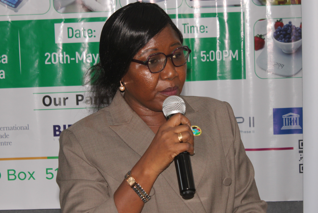
South Sudan Launches Cooperative Electronic Register

By: Patricia John
The Ministry of Agriculture and Food Security, in partnership with the Food and Agriculture Organization of the United Nations (FAO) and supported by the African Development Bank and World Bank, launched an electronic registration system on Tuesday to ensure the proper management of cooperatives.
Speaking during the launch, Hussein Abdelbagi Akol, Minister of Agriculture and Food Security, stated that the electronic registration is an innovative development that will facilitate the collection and preservation of information on cooperatives across the country.
He emphasized that cooperatives have the potential to transform the socio-economic status of various groups.
“Cooperatives provide decent job opportunities for everyone. Women, youth, and vulnerable groups involved in cooperatives will come together and create decent jobs,” said Abdelbagi.
“Cooperatives combat poverty, which is one of the most pressing issues in our country. To overcome this, we must unite as a group to ensure that everyone has a role within and outside the group,” he added.
Meshack Malo, FAO country representative in South Sudan, highlighted the importance of transitioning from analog to digital through the launch of the electronic registration system, describing it as a crucial element.
He emphasized the need for the Ministry of Agriculture and Food Security to protect cooperative members from unscrupulous officials.
“Given the numerous cooperatives we have seen, officials may take advantage of hard-working members. As FAO, we are committed to working with the ministry and department to prevent this,” said Malo.
Stephen Almadi, head of the Cooperative Department at the Cooperative Bank of South Sudan, mentioned that the system will enable centralized registration for all cooperative movements in the country. He reiterated the bank’s dedication to collaborating with the ministry to support and ensure the success of the project.
“As the Cooperative Bank, cooperatives are at the core of our operations, and we are very interested in knowing their locations, identities, and working with them,” said Almadi.
This digital platform will enhance transparency, efficiency, and sustainability, ultimately leading to economic transformation.




































